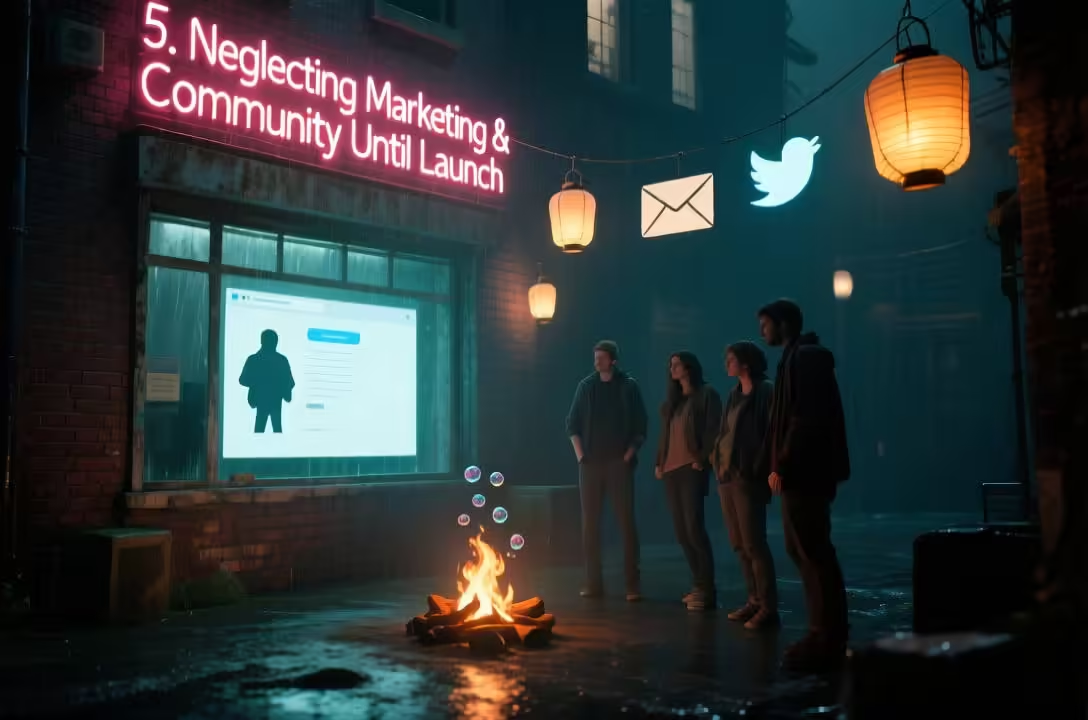5. 1. Overambition: Don’t Build an MMO on Day One
New developers often confuse passion with feasibility. Tackling a sprawling scope without an MVP is the single most common mistake new game developers make — and it’s where most projects stall.
Start by defining the smallest playable loop that proves your core idea. A tight checklist helps: one clear mechanic, one win/lose condition, and one short session length.
Ship that. Iterate.
Scope creep isn’t a moral failing; it’s a planning problem. Breaking features into vertical slices keeps motivation high and bugs manageable, and it makes milestones actually mean something.
( (Source)
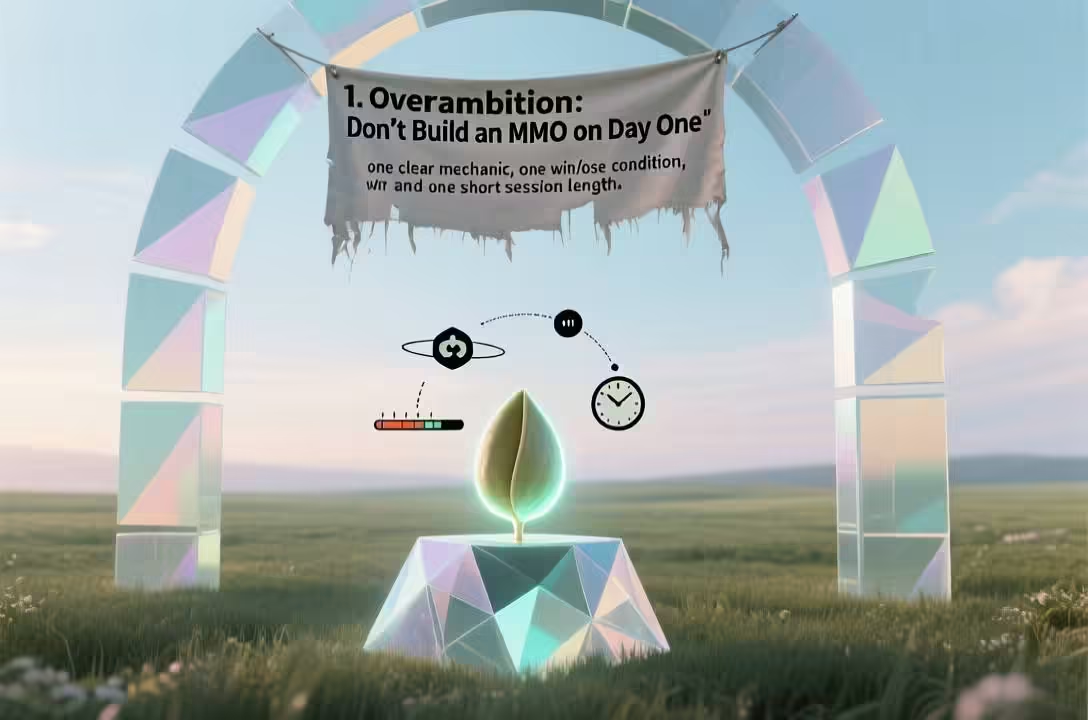
4. 2. Ignoring Playtesting: The Silent Project Killer
Assuming players will “get it” is a rookie move. Playtesting reveals design blind spots faster than any forum thread.
New developers should set a cadence: prototype — test — adjust, repeat. Get strangers to play; friends are useful, but strangers expose actual UX problems.
Record sessions, ask five focused questions, and watch where people hesitate. Even a ten-minute, five-player test will blow up false assumptions and save months of rework.
Treat feedback as a tool, not an attack. Use bug reports and behavioral notes to prioritize fixes that improve clarity and fun, not just aesthetics.
( (Source)
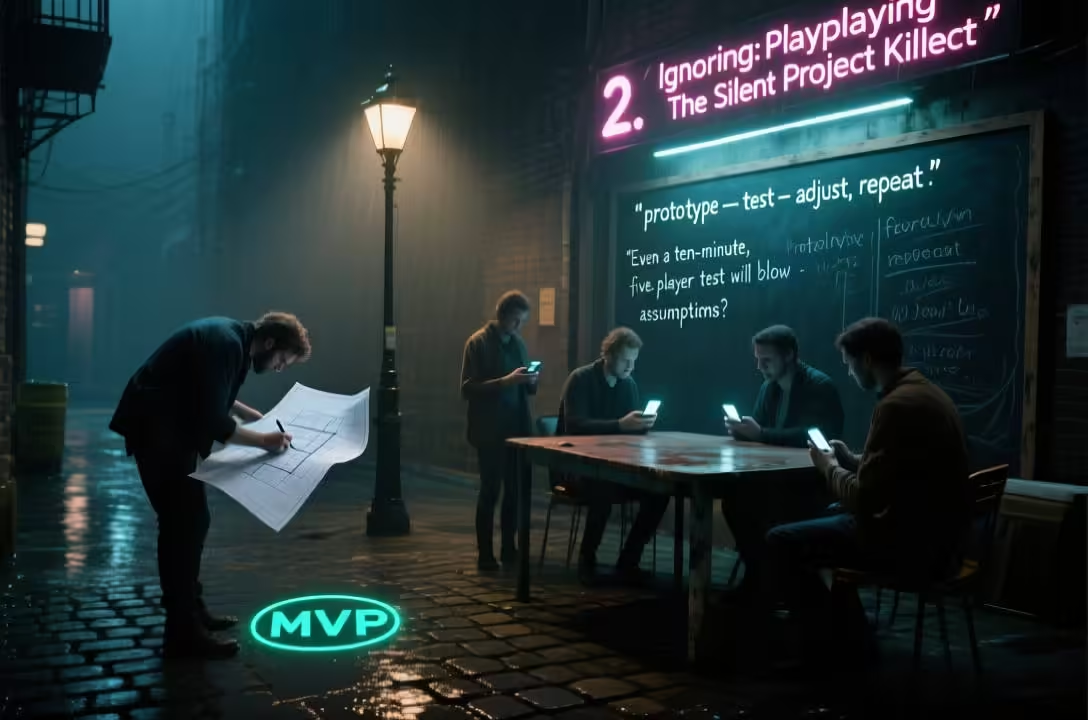
3. 3. Polishing Everything Instead of the Fun Core
It’s tempting to spend weeks on art, animations, and sound because they feel satisfying. But polishing peripheral stuff before your core mechanic is fun is putting lipstick on a concept.
The correct order is prototype the core mechanic until it’s compelling, then layer visuals and polish. Think of it like baking: proof the dough (mechanics) before you decorate the cake (art).
Save polish for milestones and use placeholder assets to iterate fast. This approach accelerates learning and prevents sunk-cost fallacy from killing otherwise good ideas.
Keep a “fun-first” audit: if a change doesn’t make the core loop more engaging, deprioritize it. ( (Source)
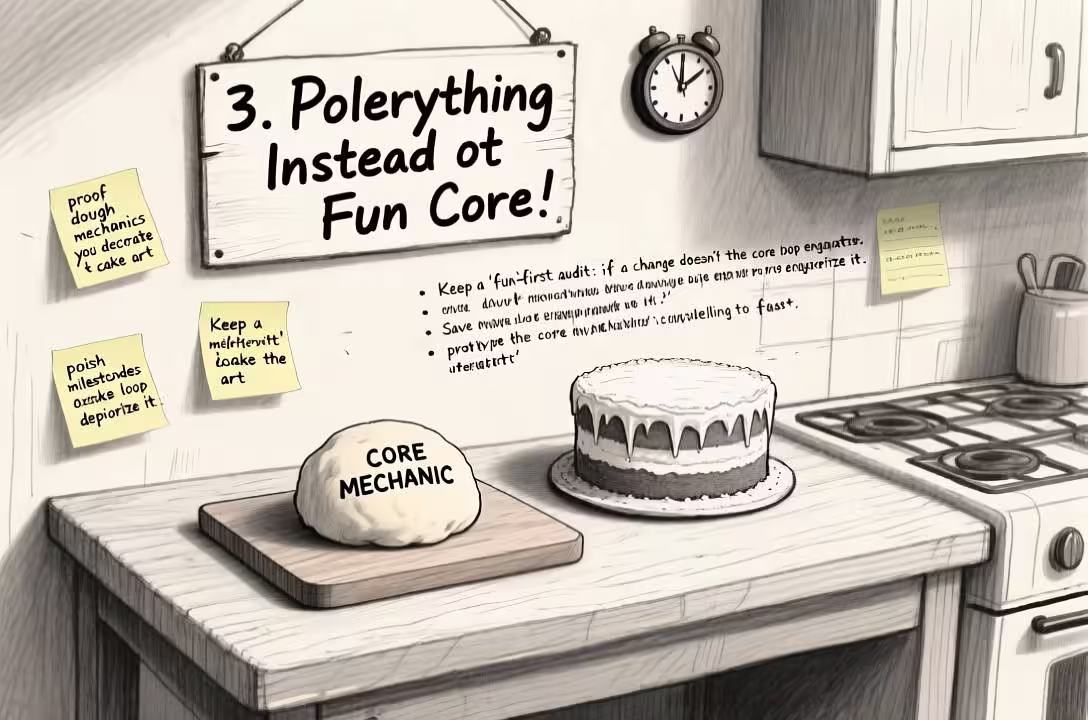
2. 4. Tool Paralysis and Bad Tech Choices (Yes, Unity Blunders Count)
Picking the wrong tools, or juggling too many, wastes momentum. Unity is approachable but not magic; misusing plugins, over-architecting systems, or copying patterns without understanding them causes long-term debt.
New developers should choose one engine, learn its idioms, and keep dependencies minimal. Avoid premature optimization — ship features before profiling.
Maintain a simple folder and component structure, document conventions, and make refactors deliberate. If a third-party package solves a clear problem, vet it for support and updates; if it’s experimental, treat it as temporary.
Smart tech choices reduce friction and keep creativity fluid. ( (Source)
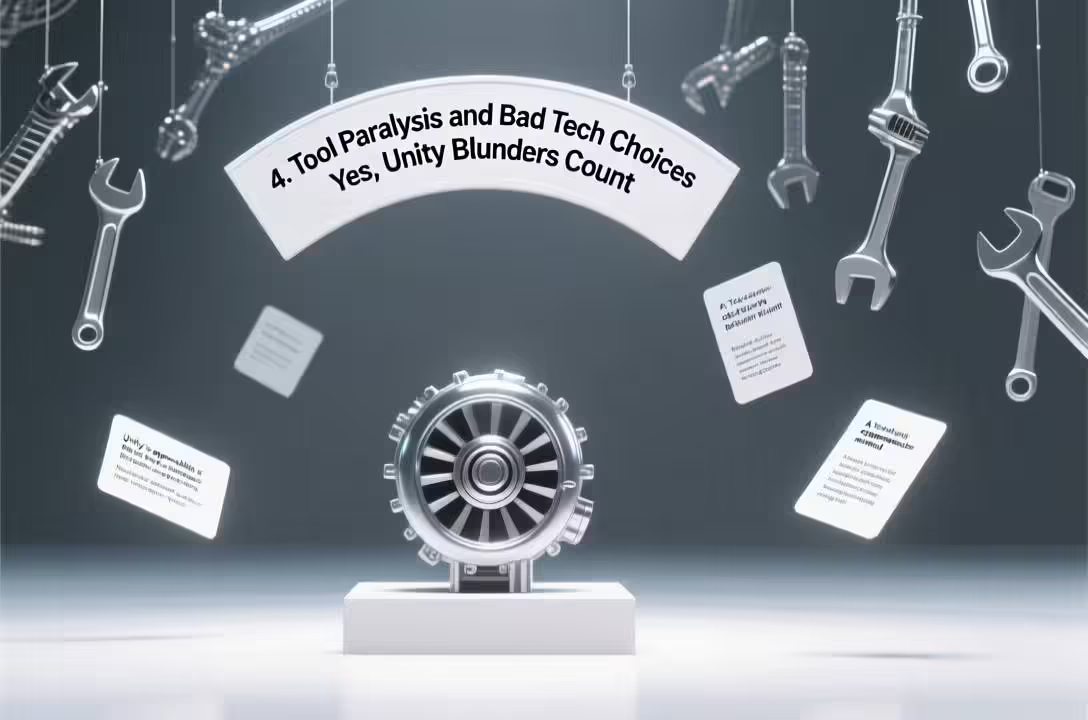
1. 5. Neglecting Marketing & Community Until Launch
Games don’t launch into silence and become hits by miracle. Waiting until the end to build an audience is one of the most costly game development mistakes.
Start a devlog, tweet short clips, share prototypes with a small community, and capture emails from day one. Early fans become testers, evangelists, and morale boosters.
Even simple assets — a Steam page, a one-sheet, a few GIFs — make your work discoverable and force clarity about what you’re building. Marketing isn’t about hype; it’s about consistent communication and giving players a reason to care while you’re still fixing the hard stuff.
(Wrapping up: small, focused work beats grand plans stalled in a Trello purgatory. Avoid these five traps, use checklists, and treat feedback as a compass.
The next playable you ship will teach more than the last hundred hours of perfectionism ever could — so make it real, make it fun, and ship. 🚀 ( (Source)
